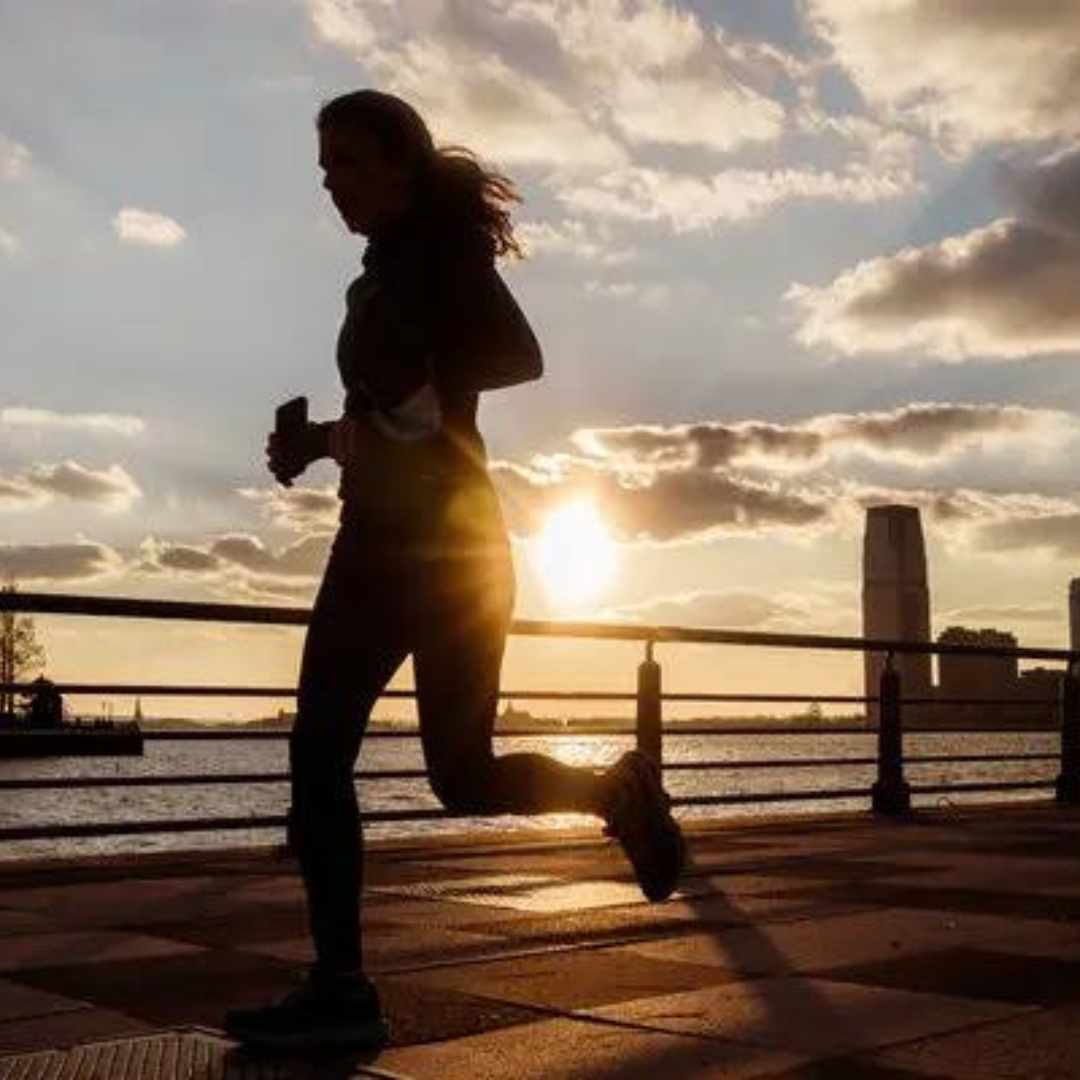Exercise in the Evening boosts Your Heart Health
Active work later in the day might do the most to direct glucose levels in individuals with stoutness, safeguarding the heart.
Doing most of moderate-to-fiery actual work at night was connected to better wellbeing results for individuals with weight contrasted and practicing at different times, as per an Australian review distributed on April 10 in Diabetes Care.
High-impact active work (sessions enduring three minutes or longer) that was performed for the most part at night (from 6 p.m. to 12 PM) was related to the best decreases in death and coronary illness, says coauthor Angelo Sabag, PhD, a speaker in practice physiology at the Sydney School of Wellbeing Sciences in Australia.
“In any case, the critical message from our review is that actual work whenever is related with a diminished gamble of cardiovascular illness and mortality in grown-ups with weight,” he says. By and large, these discoveries feature the significance of actual work for heart wellbeing and mortality, says Dr. Sabag.
Morning, Afternoon and Evening exercises Were Followed for 8 Years
To investigate the connection between the planning of activity and coronary illness and demise from any reason, scientists included almost 30,000 grown-ups with weight who were age 40 and more seasoned from the UK Biobank information. The typical member age was 62, and around 10% of the subjects (2,995) were additionally determined to have type 2 diabetes. Individuals were prohibited from the preliminary in the event that they had prior coronary illness, disease, or both.
The sum and timing of actual work of members was estimated by an accelerometer worn 24 hours per day for seven days when the review started. Activity of any kind was followed, including any development during their normal working day or while doing family tasks, as well as organized practice like running or strolling.
Members were then positioned into one of three classes in view of when they did most of their moderate to fiery actual work: morning, evening, or night.
Instances of moderate action incorporate lively strolling, moving, and planting, and incredible power exercises incorporate running, running, quick cycling, quick swimming, and strolling energetically up a hill.
Analysts connected that data to wellbeing information from the Public Wellbeing Administrations and Public Records of Scotland to follow members’ wellbeing directions for 7.9 years. During the development, there were 1,425 passings, 3,980 cardiovascular occasions, and 2,162 microvascular brokenness occasions like diminished nerve, kidney, or eye capability (neuropathy, nephropathy, or retinopathy).
To attempt to focus on the effect of active work timing, specialists controlled for various elements, including socioeconomics, smoking, liquor utilization, diet, and rest.
People Who Exercised in the Evening Had a Lower Risk of Death
When participants were compared with a control group who had no bouts of moderate to vigorous physical activity, researchers found:
- People who did the majority of their aerobic physical activity between 6 p.m. and midnight had the lowest risk of premature death and death from heart disease.
- More activity in the evening was associated with a 61 percent lower risk of dying from any cause, afternoon activity was associated with a 40 percent lower risk, and morning activity was associated with a 33 percent lower risk.
- More activity in the evening was associated with a 36 percent lower risk of dying from heart disease, afternoon activity was associated with a 16 percent lower risk, and morning activity was associated with a 17 percent lower risk.
- Evening exercise was also linked with a lower risk of neuropathy, nephropathy, or retinopathy. The risks decreased by 24 percent for evening activity, 16 percent for afternoon activity, and 21 percent for morning activity.
- The frequency of the evening physical activity also appeared to be more important than the total amount of daily physical activity.
While more examination is expected to show that the planning of action caused the diminished dangers, this study proposes that the planning of actual work could be a significant piece of the proposals for future stoutness and type 2 diabetes, the executives, and preventive medical services by and large, says Sabag.
Exercising Later in the Day May Compensate for Decreased Insulin Sensitivity
These discoveries seem OK given past examination that is shown that there is a circadian beat to insulin responsiveness, says Matthew Kampert, DO, a doctor in sports medication and endocrinology and overseer of activity medication at the Endocrinology and Digestion Organization at Cleveland Center in Ohio. “Some accept that this diminished insulin responsiveness during night hours was created to safeguard against hypoglycemia (low glucose) over the course of the evening, when individuals would normally not eat food,” says Dr. Kampert, who was not associated with the review.
For individuals who can’t deliver more insulin to redress (in the same way as other individuals living with heftiness remembered for the review), undertaking active work later in the day might counterbalance a portion of the night related insulin obstruction, says Sabag.
There are two fundamental ways that exercise brings down glucose:
- Physical activity increases insulin sensitivity, so your muscles cells are more able to use any available insulin to take up glucose (sugar) during and after activity.
- When your muscles contract, your cells are able to take up glucose and use it for energy even if insulin isn’t available.
“While this translation gives some knowledge of possible instruments, further exploration is expected to acquire a more extensive comprehension of such cycles,” says Sabag.
Could some of the benefits be caused by what people weren’t doing at night?
There is proof that late evening eating and nibbling will in general incorporate all the more exceptionally handled foods. Might a portion of the gamble decrease at any point be a result of what the night exercisers weren’t eating?
Albeit the review controlled for some elements, it is a lot harder to control for dietary variables, says Sabag. Specialists needed to depend on self-announced food review and journals for the members’ eating routine. “Regardless, we controlled for leafy foods utilization and diet quality file, and the outcomes stayed steady,” he says.
Should You Start Exercising in the Evening?
This study laid out an affiliation, rather than causation, brings up Kampert. “It is generally critical to meet suggested rules for practice first, prior to agonizing over what season of day is great,” he says.
Active work rules suggest 150 minutes of moderate-power practice each week and two days of muscle fortifying (opposition preparing or loads) each week.
“Notwithstanding all the current information around the medical advantages of activity, just 1 out of 4 grown-ups are meeting current actual work proposals,” says Kampert.
Sabag concurs, as this study shows that actual work whenever of day further developed results compared to individuals who weren’t dynamic. “Wellbeing experts and rules ought to urge people to consolidate or structure their active work into a standard that is supportable in the drawn out to yield the most noteworthy wellbeing upgrades,” he says.
Yet, for individuals with additional adaptable timetables and metabolic entanglements like weight, metabolic disorder, or diabetes, planning actual work at night might assist better with controlling glucose levels and diminish cardiovascular and all-cause mortality risk, he says.
Does Exercising in the Evening Interfere With Sleep?
“A few reports show that activity, especially of extreme focus, may slow down rest length and quality, but the jury is still out,” says Sabag.
From here onward, indefinitely quite a while, the tried and true way of thinking suggested not practicing for basically a couple of hours before sleep time. Notwithstanding, ongoing examination recommends that night actual work doesn’t disrupt rest.
A meta-examination of 23 investigations likewise reasoned that practice later in the day didn’t cause rest issues, yet that individuals ought to keep away from enthusiastic activity no less than one hour before sleep time.

